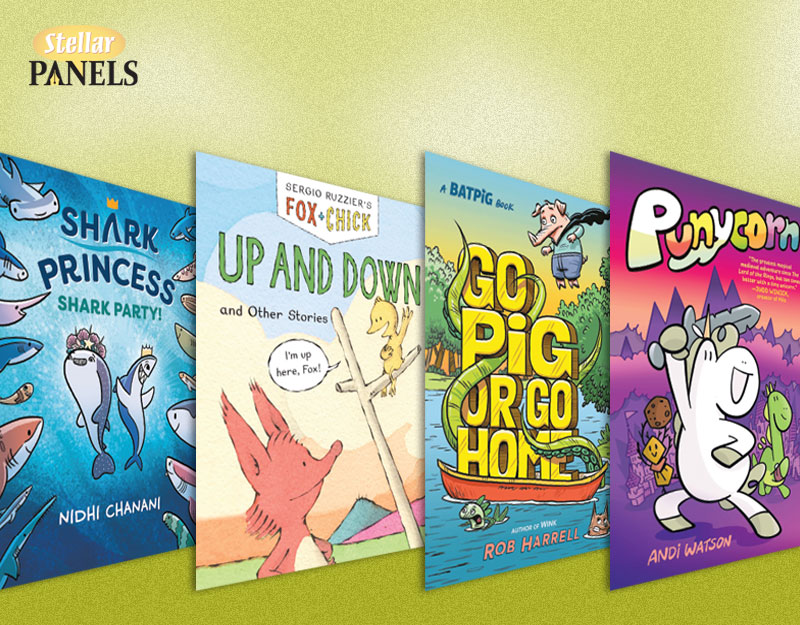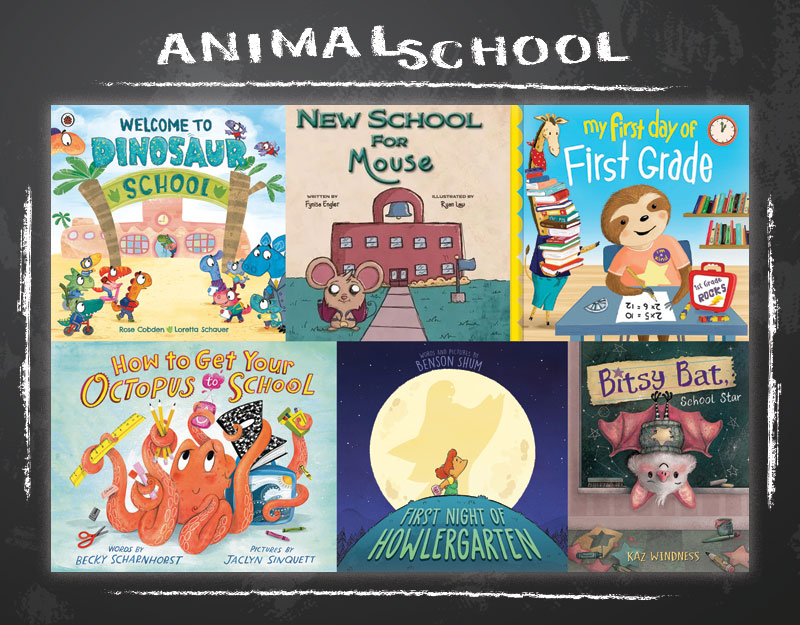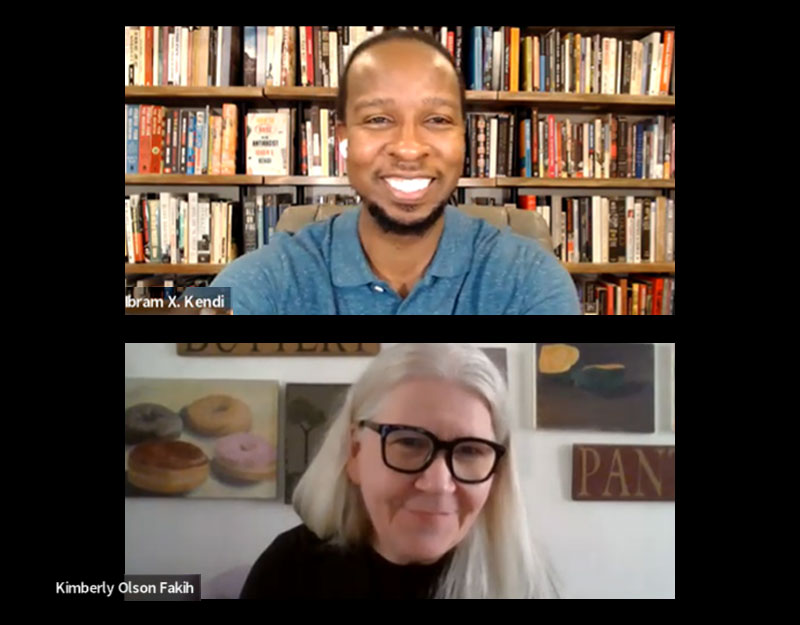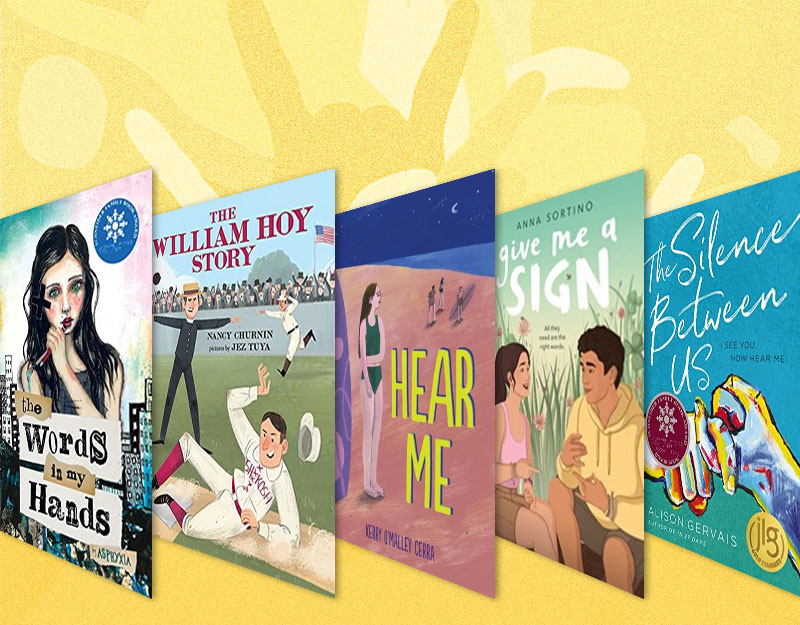Book Bans, Anti-Queer-and-Trans-Legislation, and “Quieter” Queer Books: An Open Letter by Jen Ferguson
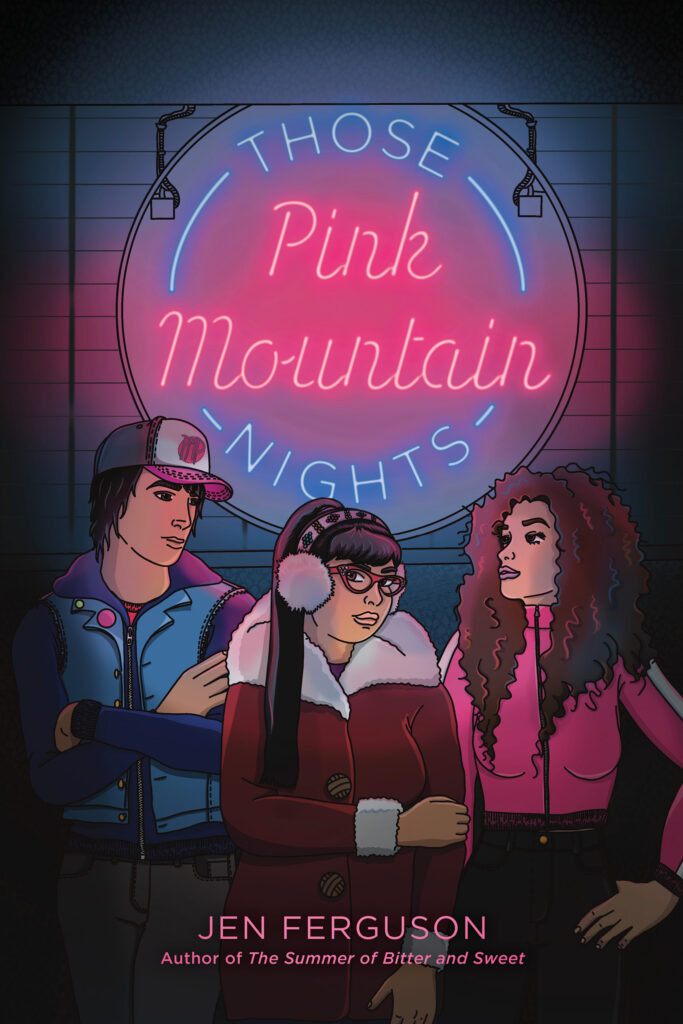
Cover design credit: Laura Mock
Dear friends and foes:
To get started, here in this letter, I’m going to assume a few things. Yes, I do know that old saying. And I’m taking the risk. Will you come along with me?
Alright, let’s go.
Here are my assumptions.
We all know book bans are a tool that white supremacy uses in its attempt to re-assert itself and its values into libraries and schools who, in the last handful of years, have started to fill their shelves and reading lists with content that more accurately represents our world.
ADVERTISEMENT
ADVERTISEMENT
And we all know anti-queer-and-trans-legislation is serving up the same thing, doing so in service to the same values, being passed by elected officials who are absolutely working for white supremacy, whether they know it or not.
And, yes, we all know that this environment will affect what kinds of books queer and trans writers (those who are out and those who are not) dream up and what they write.
Wait, do we all know that?
For a quick second, while I make my last point here, let’s ignore my maybe mishap. Because this is important.
We all know this environment will negatively affect readers, right?
Yeah, we do know.
But what I’m not sure we all remember, all know is this: these attacks, these attempts from a system that does not value so many of us creates a world where the outcome of these actions negatively affects us all, regardless of race, ethnicity, whether you’re queer or trans or not, whether you’re currently disabled or whether you’re currently not.
When attacked, some of us get louder, bolder, take the frontlines, and some of us turtle. We seek the safety of our shell.
This has to do with privilege, certainly. Some of it with personality. And some of it, simply, has to do with safety. With a real need to be safe. With the real knowledge of how unsafe it is in your body in this world.
When it comes to queer and trans writers, we’re also thinking about our careers. Will our publisher keep publishing our writing in this climate? Will booksellers keep stocking us? Will teachers keep teaching us, recommending us to their students? Will librarians keep us on the shelves, invite us to visit their branches?
Already, this is changing for established writers who make their living off things like school visits.
For those of us who are still new on the scene, we may have never gotten invited at all.
Of course, if your identity is intersectional, say queer and trans, or trans and Black, or queer and Native, you’re carrying a lot more. While I’m specifically talking about what’s happening with queer and trans books right now, none of us are under the impression it’s not happening to books with BIPOC, or disabled or non-Christian religious representation, written by marginalized authors, right?
No?
Excellent. We can move onward.
What I’m noticing, what my friends and I are talking about in the DMs, has something to do with how we as writers are reacting to the book bans, and the anti-queer-and-trans laws so many states are enacting.
Some of us have decided to write, knowingly or not, “quieter” queer books. Books where the queer characters aren’t embodying Loud and Proud, or even Be Gay, Do Crimes, but simply living their lives. Simply being queer where being queer isn’t the plot.
And that’s not a bad thing.
We truly deserve all the queer and trans books. Every single one of them. All the adjectives.
But those “quieter” books don’t get seen or shared or valued in the same way.
On bookshelves: because if they are “quiet” is the queerness or transness anywhere in the marketing materials? On the cover? How does a reader or reviewer know the book is queer if we don’t value “quieter” queer stories.
By awards: because if they are “quieter” are they doing the work that awards want to award?
But even these “quieter” books do not escape bans, challenges, and anti-queer-and-trans legislation. They don’t. They may fly under the radar for a while. But “quieter” isn’t stealth.
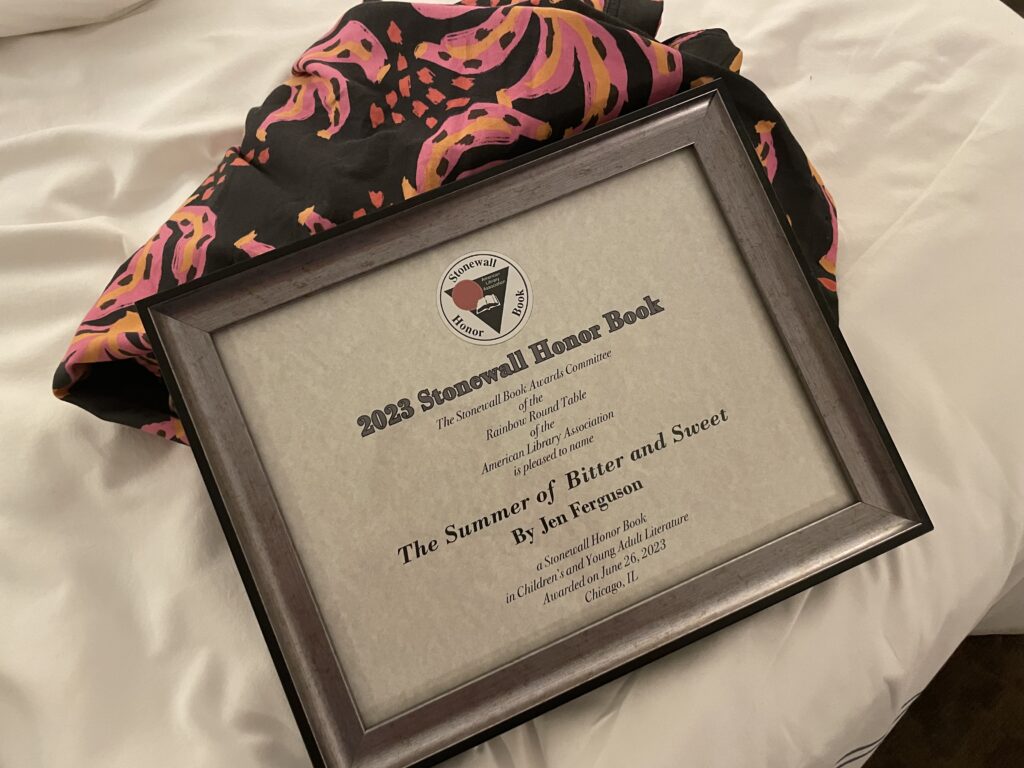
A friend makes a very good point: “And this is tricky because like… at a certain point how can [we] make trans books quieter? At a certain point—the kid is trans or not.”
So, take note, there are different kinds of quiet in this letter. The quiet of an everyday life. The quiet of hiding, concealing, returning to queer-coding.
As my friend makes clear, some of us never get to be that kind of quiet; some of us can’t turtle easily, or even at all.
Those Pink Mountain Nights is a quieter queer book in some ways. Thought it’s not intentionally quiet in the way that the environment around us might be encouraging. It’s quiet in that queerness is the norm. It’s not challenged. It’s not the plot. It’s not something my queer and nonbinary characters are fighting against. They’re just living.
And well, they’re fighting other things. Like a certain kind of capitalism and fighting to find a missing Cree teen that the police have stopped looking for. And hey, those things might be connected, eh?
If Those Pink Mountain Nights is challenged, I can imagine the challenges will come because it shows a diverse group of teens fighting back against broken systems: capitalism and Canada’s “slow” genocide against Indigenous peoples.
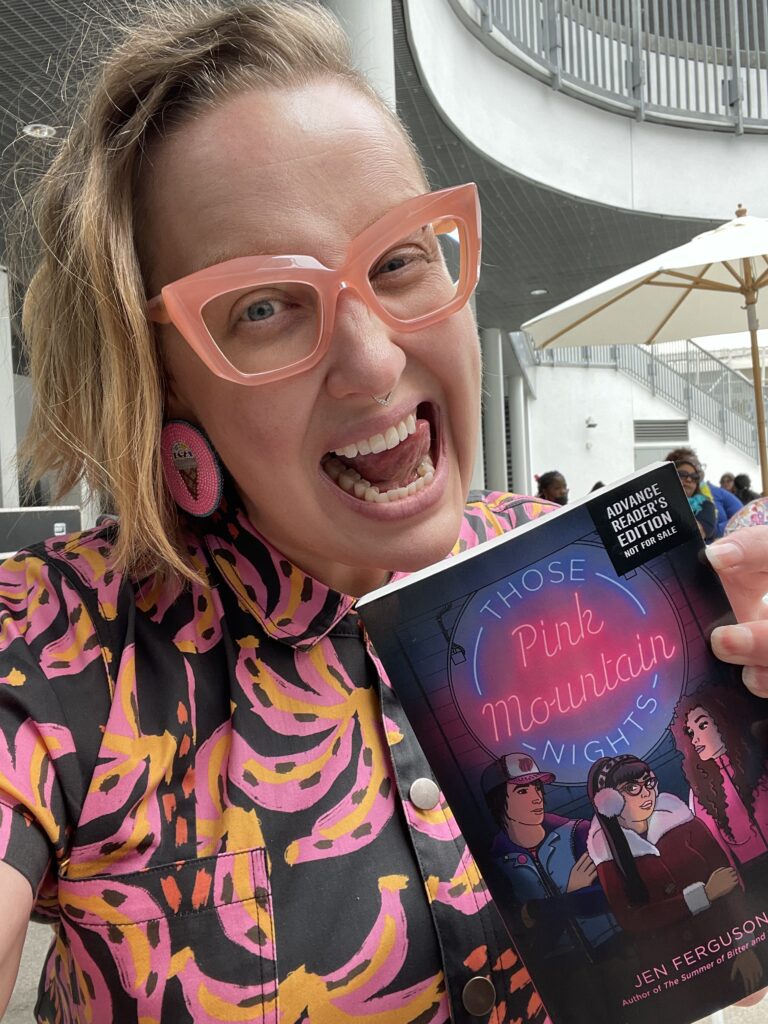
This letter might not be the kind that ends with a point. It’s a letter, friends and foes, not an essay—this rhetorical move that helped me to write this, to be able to write this.
But also, maybe this is a thing I haven’t said loudly enough yet: what’s happening now, it affects what we write (consciously or not), and it affects what’s getting bought by publishers, and that, of course, as my friend pointed out so well in our text chat, that affects what we write because of what’s getting bought.
The question I’m left with right now: what’s a writer to do?
Get loud?
Get quieter?
Get angry?
Get revenge? Haha, yes, if spite drives you, then please, keep going.
In the end, when we write YA we write for teens. And teens deserve everything, all the books, the quiet ones, the loud ones, the joyful trans books, the ones that know that going through the pain is one of the ways of surviving it, the books where characters come out, the books where they don’t, the books where bi and trans characters are in “straight-passing” relationships, and the ones where they’re not, the ace characters who aren’t in sexual or romantic relationships, and of course, the ones who are, the disabled queers, and those who are questioning, and on and on and on.
You get it right?
Everything. That’s what teens deserve.
Let’s remember that. Let’s keep that centered in our hearts, minds, in the fight, in the quieter moments, always.
Your accomplice <3
Jen
Meet the author
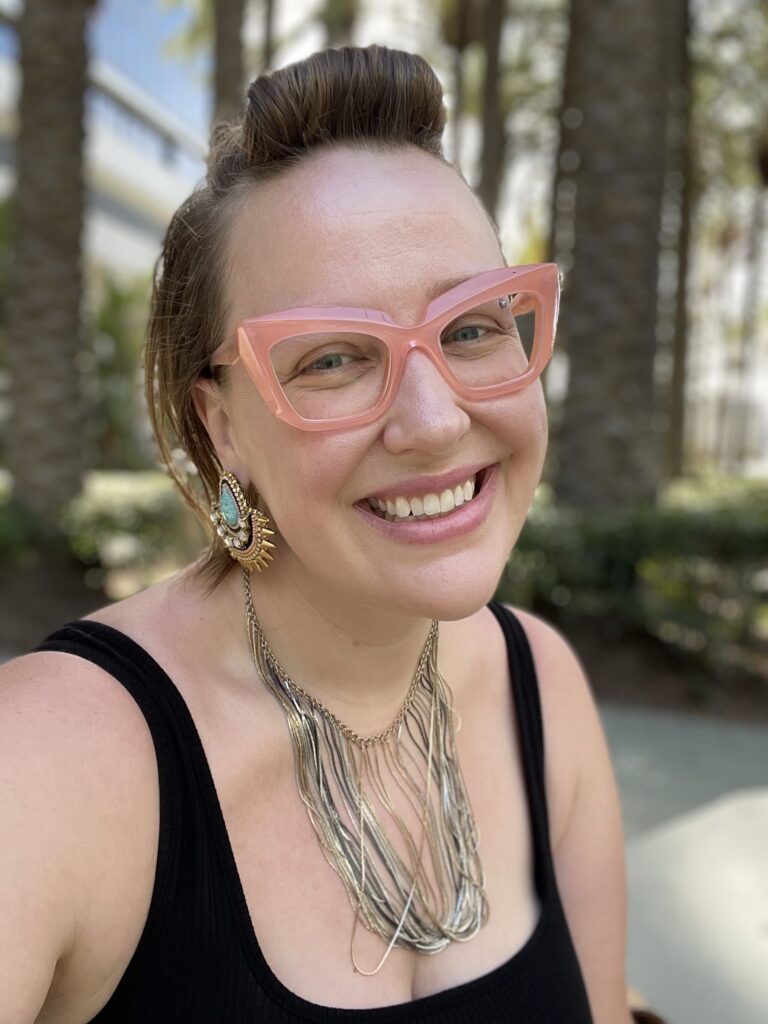
Jen Ferguson (she/her) is Métis and white, an activist, a feminist, an auntie, and an accomplice armed with a PhD in English and Creative Writing. She believes writing, teaching and beading are political acts. Her debut YA novel, The Summer of Bitter and Sweet (Heartdrum/HarperCollins) won a 2022 Governor General’s Literary Award and is a 2023 Stonewall Honor Book. Jen’s second YA novel with Heartdrum, Those Pink Mountain Nights, is out now.
About Those Pink Mountain Nights
In her remarkable second novel following her Governor General’s Award-winning debut, The Summer of Bitter and Sweet, Jen Ferguson writes about the hurt of a life stuck in past tense, the hum of connections that cannot be severed, and one week in a small, snowy town that changes everything.
Overachievement isn’t a bad word—for Berlin, it’s the goal. She’s securing excellent grades, planning her future, and working a part-time job at Pink Mountain Pizza, a legendary local business. Who says she needs a best friend by her side?
ADVERTISEMENT
ADVERTISEMENT
Dropping out of high school wasn’t smart—but it was necessary for Cameron. Since his cousin Kiki’s disappearance, it’s hard enough to find the funny side of life, especially when the whole town has forgotten Kiki. To them, she’s just another missing Native girl.
People at school label Jessie a tease, a rich girl—and honestly, she’s both. But Jessie knows she contains multitudes. Maybe her new job crafting pizzas will give her the high-energy outlet she desperately wants.
When the weekend at Pink Mountain Pizza takes several unexpected turns, all three teens will have to acknowledge the various ways they’ve been hurt—and how much they need each other to hold it all together.
Jen Ferguson burst onto the YA scene with her first novel, which was a William C. Morris Award Finalist and a Stonewall Award Honor Book, and this second novel fulfills her promise as one of the most thoughtful and exciting YA writers today.
ISBN-13: 9780063086210
Publisher: HarperCollins Publishers
Publication date: 09/12/2023
Age Range: 13+ Years
Filed under: Guest Post
About Amanda MacGregor
Amanda MacGregor works in an elementary library, loves dogs, and can be found on Twitter @CiteSomething.
ADVERTISEMENT
ADVERTISEMENT
SLJ Blog Network
The 2024 Ninja Report: Bleak
A Sequel Coming This Summer That You Won’t Want to Miss: Bob Shea Discusses His Latest
Review| Agents of S.U.I.T. 2
ADVERTISEMENT



